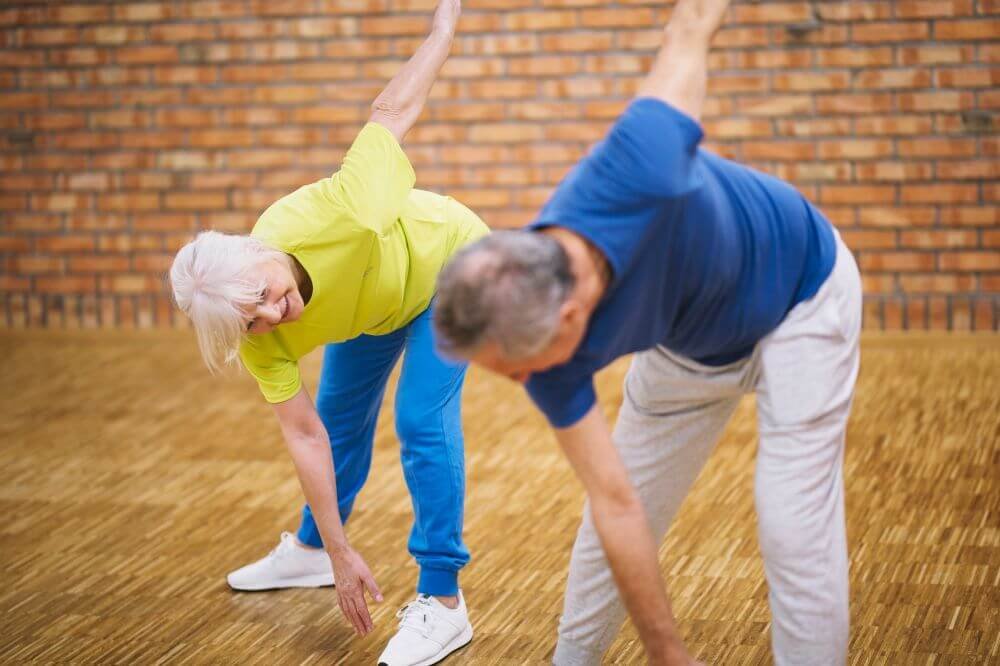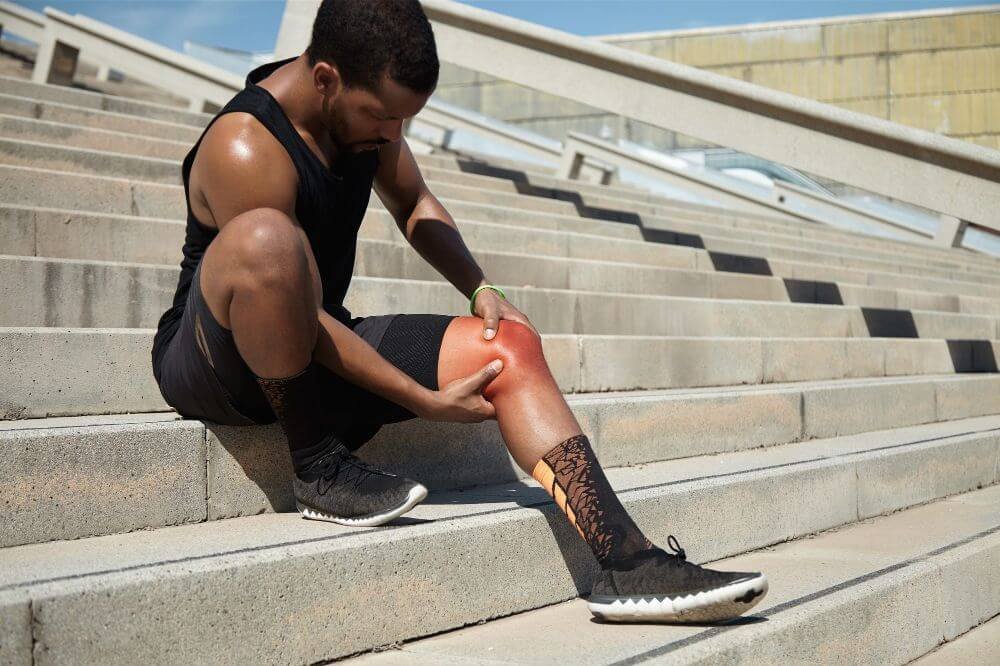Joint pain or stiffness can significantly impact our daily lives, making even the simplest tasks a challenge. Whether you’re an athlete, an office worker, or an older adult, dealing with joint discomfort can be frustrating and debilitating. In this comprehensive guide, we will delve into the causes, symptoms, and effective strategies for managing joint pain or stiffness. So, if you’re tired of being held back by your joints, read on to discover valuable insights that can help you regain your mobility and live a pain-free life.
Living with joint pain or stiffness is an experience shared by millions of people worldwide. It affects individuals of all ages and can result from various factors, including injury, inflammation, or age-related degeneration. The discomfort can occur in different areas, such as the knees, hips, shoulders, and wrists, impacting mobility and overall quality of life. In this article, we will explore the underlying causes of joint pain or stiffness and provide actionable solutions to alleviate your discomfort.

Joint Pain or Stiffness? Understanding the Basics
Joint pain or stiffness can manifest in different ways, ranging from mild discomfort to severe agony. The affected joint may feel tender, swollen, and warm to the touch, making movement painful and restricted. Common causes of joint pain or stiffness include:
Arthritis: This chronic condition involves inflammation of the joints and is commonly associated with symptoms like pain, stiffness, and limited range of motion.
Injury: Traumatic events, such as fractures, dislocations, and sprains, can lead to joint pain or stiffness.
Overuse: Repetitive movements or excessive strain on a joint, often caused by certain occupations or sports activities, can result in discomfort.
Age-related degeneration: As we grow older, the wear and tear on our joints increase, leading to conditions like osteoarthritis.
Understanding the Causes of Joint Pain or Stiffness
Discover the Future of Joint Health. Click here.
Joint pain or stiffness is frequently attributed to arthritis, a group of conditions characterized by joint inflammation. The most prevalent forms of arthritis include osteoarthritis, rheumatoid arthritis, and gout.
- Osteoarthritis: This degenerative condition occurs when the cartilage that cushions the ends of bones gradually wears away. It commonly affects weight-bearing joints like the knees, hips, and spine.
- Rheumatoid arthritis: An autoimmune disorder, rheumatoid arthritis causes the immune system to mistakenly attack the lining of the joints, resulting in inflammation, pain, and potential joint deformity.
- Gout: Gout is characterized by the accumulation of uric acid crystals in the joints, leading to sudden and severe bouts of pain, swelling, and tenderness.
Injuries: The Unexpected Disruptor
Joint pain or stiffness can also be the result of injuries, such as sprains, strains, fractures, and dislocations. These acute injuries can damage the ligaments, tendons, or bones surrounding a joint, leading to pain and restricted movement.
Overuse: A Consequence of Repetitive Strain
Repetitive movements and excessive strain on a joint can contribute to joint pain or stiffness. Occupations that involve repetitive tasks, such as typing or heavy lifting, as well as sports that require repetitive motions, like running or tennis, can lead to discomfort over time.
Age-Related Degeneration: The Wear and Tear
As we age, the cartilage in our joints gradually breaks down, leading to conditions like osteoarthritis. Additionally, the production of synovial fluid, which lubricates the joints, decreases over time, resulting in friction and joint stiffness.

Hyaluronan: The Key to Relieving Joint Pain and Stiffness
Experience Unparalleled Mobility: Discover the Revolutionary Formula. Click Here.
Hyaluronan, also known as hyaluronic acid, is a substance that is naturally present in the human body, especially in the joints. It plays a crucial role in maintaining the health and function of joints, and its relationship to joint pain or stiffness is significant.
In healthy joints, hyaluronan acts as a lubricant and shock absorber. It is a key component of the synovial fluid, a thick, gel-like substance that surrounds the joints. This fluid helps to reduce friction between the joint surfaces during movement, allowing for smooth and pain-free motion.
Causes of Joint Pain or Stiffness
One of the primary causes of joint pain or stiffness is the breakdown of cartilage, the smooth tissue that covers the ends of bones in a joint. Cartilage provides a cushioning effect and helps the joints move smoothly. However, factors such as aging, injury, or certain medical conditions can lead to the deterioration of cartilage.
When cartilage breaks down, it can result in joint pain, inflammation, and stiffness. This is where hyaluronan comes into play. It helps to maintain the integrity and health of the cartilage by promoting hydration and providing nourishment to the joint tissues.
The Role of Inflammation in Joint Pain or Stiffness
Hyaluronan also has anti-inflammatory properties. Inflammation in the joints can contribute to pain and stiffness. By reducing inflammation, hyaluronan can help alleviate these symptoms and improve joint function.
Furthermore, hyaluronan has been found to stimulate the production of natural joint lubricants and promote the regeneration of cartilage. It helps to restore the balance in the joint environment and supports the overall health and structure of the joint.
Revolutionize Your Joint Well-Being: Discover the Life-Changing Effects. Click Here.
Medications for Joint Pain or Stiffness: What You Need to Know
In cases of joint pain or stiffness, medical professionals may recommend hyaluronan injections as a treatment option. The injections deliver hyaluronan directly into the affected joint, supplementing the natural levels of this substance. By doing so, it helps to restore lubrication, reduce inflammation, and improve joint mobility.
It’s important to note that hyaluronan injections are typically used for specific conditions, such as osteoarthritis, where there is a decrease in the natural production of hyaluronan. The effectiveness of hyaluronan injections may vary from person to person, and it is important to consult with a healthcare professional to determine if this treatment is suitable for your specific situation.
In summary, hyaluronan plays a crucial role in joint health by providing lubrication, cushioning, and promoting cartilage health. Its relationship to joint pain or stiffness lies in its ability to reduce friction, alleviate inflammation, and support the overall health and function of the joints. Hyaluronan injections can be used as a treatment option to supplement the natural levels of this substance and improve joint symptoms in certain conditions, particularly osteoarthritis.
Effective Strategies for Managing Joint Pain or Stiffness

Dealing with joint pain or stiffness requires a multifaceted approach that addresses the underlying causes while providing symptomatic relief. By combining lifestyle changes, home remedies, and medical interventions, you can effectively manage your joint discomfort and improve your overall well-being. Let’s explore some strategies to help you regain control over your joint health:
Maintain a Healthy Weight
One of America’s greatest weight loss success stories. Click Here.
Excess weight places additional strain on your joints, particularly those in your knees, hips, and feet. By adopting a balanced diet and engaging in regular physical activity, you can achieve a healthy weight and reduce the burden on your joints.
Stay Active
Regular exercise is crucial for maintaining joint health and mobility. Low-impact activities like swimming, cycling, and yoga can help strengthen the muscles surrounding your joints and improve flexibility without putting excessive stress on them.
Protect Your Joints
When engaging in physical activities or tasks that involve repetitive movements, it’s important to protect your joints from excessive strain. Use proper techniques, ergonomic equipment, and supportive gear to minimize the risk of injury or overuse.
Apply Heat or Cold Therapy
Heat therapy, such as warm compresses or heating pads, can help relax muscles, increase blood flow, and alleviate joint pain or stiffness. On the other hand, cold therapy, using ice packs or cold compresses, can reduce inflammation and numb the area, providing temporary relief.
Consider Over-the-Counter Medications
Nonsteroidal anti-inflammatory drugs (NSAIDs), such as ibuprofen or naproxen, can help reduce pain and inflammation associated with joint discomfort. However, it’s important to consult with a healthcare professional before using any medication.
Explore Alternative Therapies
Several alternative therapies, such as acupuncture, massage, and herbal supplements, have shown promise in managing joint pain or stiffness. While their efficacy may vary, they can be considered as complementary approaches alongside conventional treatments.
Conclusion about Joint Pain or Stiffness
Joint pain or stiffness can be a significant barrier to a fulfilling and active life. By understanding the underlying causes, implementing lifestyle modifications, and seeking appropriate medical interventions, you can effectively manage your joint discomfort and regain control over your mobility. Remember, it’s crucial to consult with healthcare professionals for an accurate diagnosis and personalized treatment plan. So, take charge of your joint health today and pave the way to a pain-free future.
FAQs (Frequently Asked Questions)
1. What are the risk factors for developing joint pain or stiffness?
Various factors can increase the likelihood of experiencing joint pain or stiffness, including advancing age, obesity, previous joint injuries, certain occupations or sports activities, and a family history of arthritis.
2. When should I seek medical attention for joint pain or stiffness?
While occasional joint discomfort is common, persistent or worsening pain, swelling, redness, or limited mobility may indicate an underlying issue that requires medical attention. It’s advisable to consult with a healthcare professional if your symptoms persist or significantly affect your daily life.
3. Are there any natural remedies for managing joint pain or stiffness?
While scientific evidence may be limited, some natural remedies have shown potential in relieving joint discomfort. These include turmeric, ginger, omega-3 fatty acids, and glucosamine. However, it’s essential to consult with a healthcare professional before incorporating any supplements into your routine.
4. Can exercise worsen joint pain or stiffness?
When done correctly, exercise can actually improve joint health and alleviate pain or stiffness. It’s important to choose activities that are gentle on the joints, gradually increase intensity and duration, and listen to your body’s limits. Consulting with a physical therapist can provide tailored guidance.
5. What are the surgical options for severe joint pain or stiffness?
In cases where conservative treatments fail to provide relief, surgical interventions may be considered. Common procedures include joint replacement, arthroscopy, and joint fusion. These options are typically explored after thorough evaluation and discussion with an orthopedic surgeon.
6. How can I prevent joint pain or stiffness in the first place?
While some causes of joint pain or stiffness are beyond our control, adopting a proactive approach to joint health can minimize the risk. This includes maintaining a healthy weight, engaging in regular exercise, avoiding repetitive strain, and protecting your joints during physical activities.





